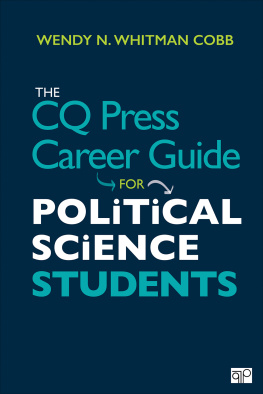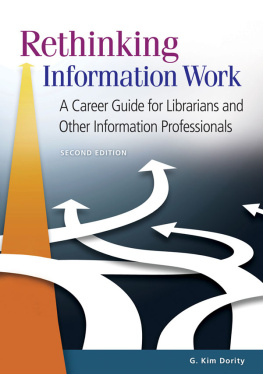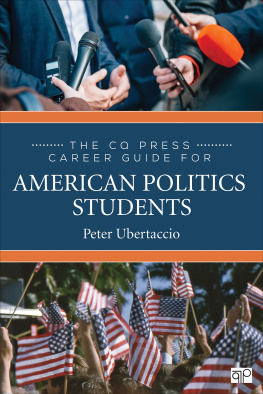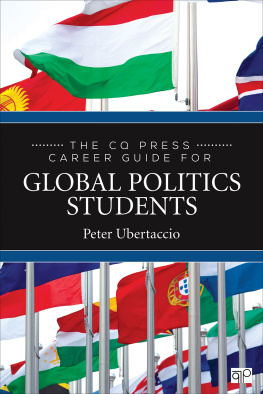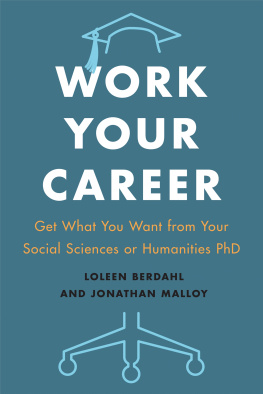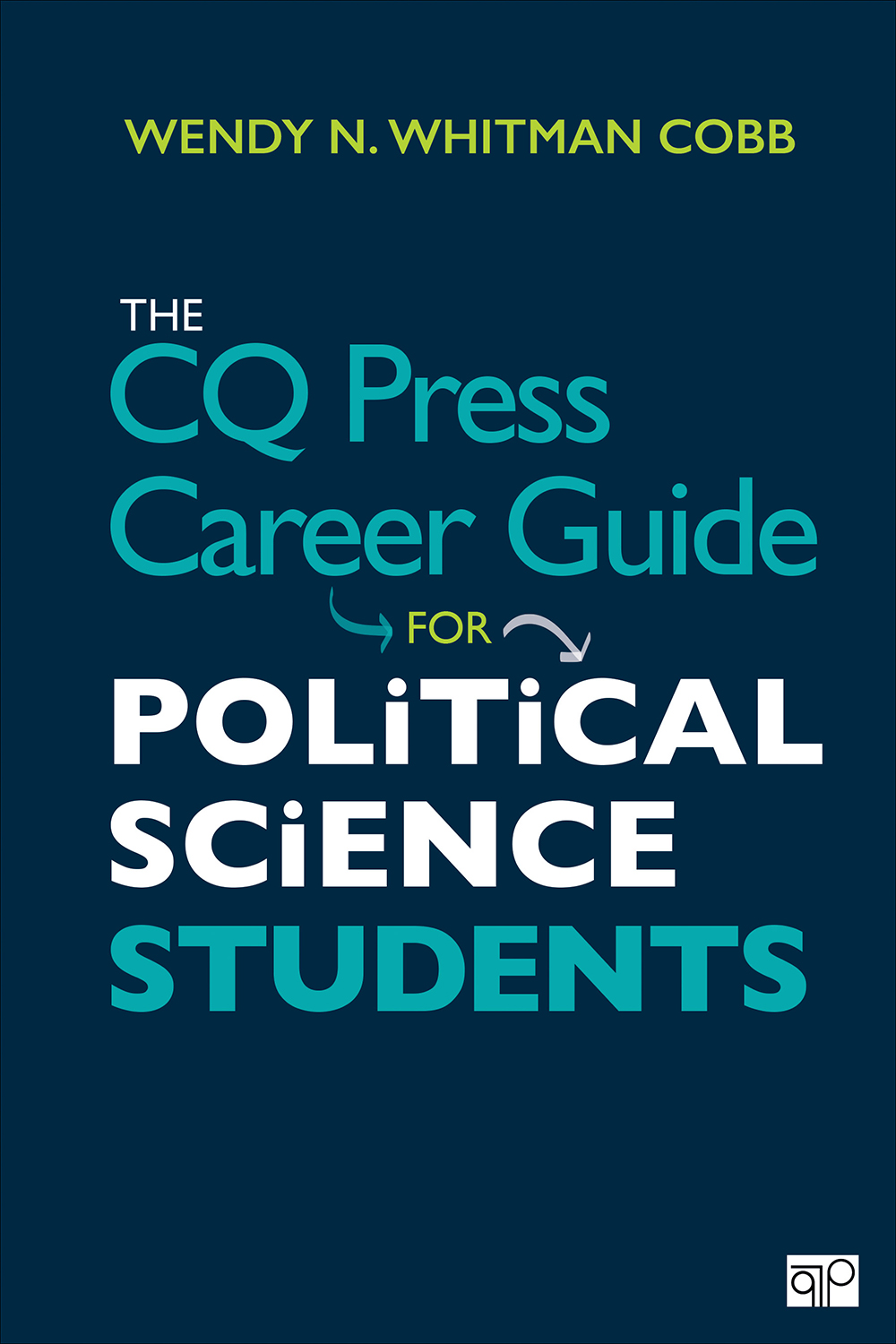Introduction
As a professor, one of the duties that I spend much of my time on is advising students who are either majoring in political science or thinking about it. One of the very first questions I ask these students is, What do you want to do after college? Often, my students are unsure about what they want to do and, in some cases, dont even know what they can do with a political science degree. What they do know, though, is that they find politics interesting and want to spend more time learning about it.
When I became a political science major as an undergraduate, I didnt even know what I was going to do after college. In fact, political science wasnt even my first major; I spent the first six weeks of my college life as a theatre major until I realized that I simply lacked the drive and ambition of my theatre peers to succeed. Thankfully, I was taking an American government class at the time, and based on my lifelong interest in politics and current events, I decided to make the leap. I am glad every day that I did because today, I get to study things that I am passionate about and spend my days with students who are every bit as excited as I am.
This book is intended to answer some of the questions that my students have had over the years about careers in political science. These include the different career fields that political science majors can pursue and just how they go about getting there. To that end, it is important to note that not even this book covers absolutely everything that political science majors have gone on to do. Political science majors have become athletes, journalists, award-winning writers, researchers, musicians, and, yes, elected officials, including presidents. The reason that a political science degree nets entry into such wide and varied fields is because of the range of information and skills that are imparted to you by your professors. Critical thinking, reading, writing, debate, research, and statistics are just some of the very important life skills that you will find helpful insideand especially outsideof the classroom.
Why I Became a Political Scientist
While not every experience is typical, I can speak for myself in saying that political science has allowed me to study things that I find interesting and exciting. Growing up in Florida, one of the most exciting things you once got to see were space shuttle launches originating from Kennedy Space Center. I always found the launches fascinating, especially those in the middle of the night. When I arrived as an undergraduate at the University of Central Florida, I found that they offered classes in both space history and space policy, opportunities that I quickly availed myself of. I had never been adept at math or science, so becoming an astronaut was not on my career radar. However, I quickly discovered that by using the tools of political science, I could research and learn about space. I have not looked back since.
As I moved toward finishing my undergraduate degree, at some point along the way, I decided that I would become an academic political scientist, someone working as a college professor, teaching, researching, and writing. I pursued a masters degree in political science, also at UCF, before moving onto the University of Florida for a PhD. Throughout, my research focused heavily on space policy and space issues, and I found myself bringing together streams of knowledge from throughout political science. I took classes not only in American politics and policy but also public administration and comparative politics. This broad education has served me well, allowing me to teach multiple areas as I have entered my own career.
After I finished my PhD, I was lucky enough to find a job as an assistant professor at Cameron University in Lawton, Oklahoma. Cameron is a small regional state school, but this has given me the opportunity to work closely with my students and know them on a personal basis. In my position, I teach a wide range of classes, from American government, the class I first got my start in, to research methods, international studies, and even zombies and politics. I continue to pursue research in areas I find interesting, including cancer policy and science and technology policy in general. I coach our Model United Nations team and serve on the board of the Midwest Model United Nations organization. In short, I get to spend my days learning new things and relaying them to some pretty amazing students.
Plan of the Book
As I stated before, this book is partially based on the questions I get from my students and what they want to know to succeed. To that end, the first chapter lays out many career opportunities that can be open to political science majors, both inside and outside of government. lays out the path to both law school and graduate school, including questions that you will want to consider as you choose your next direction.

